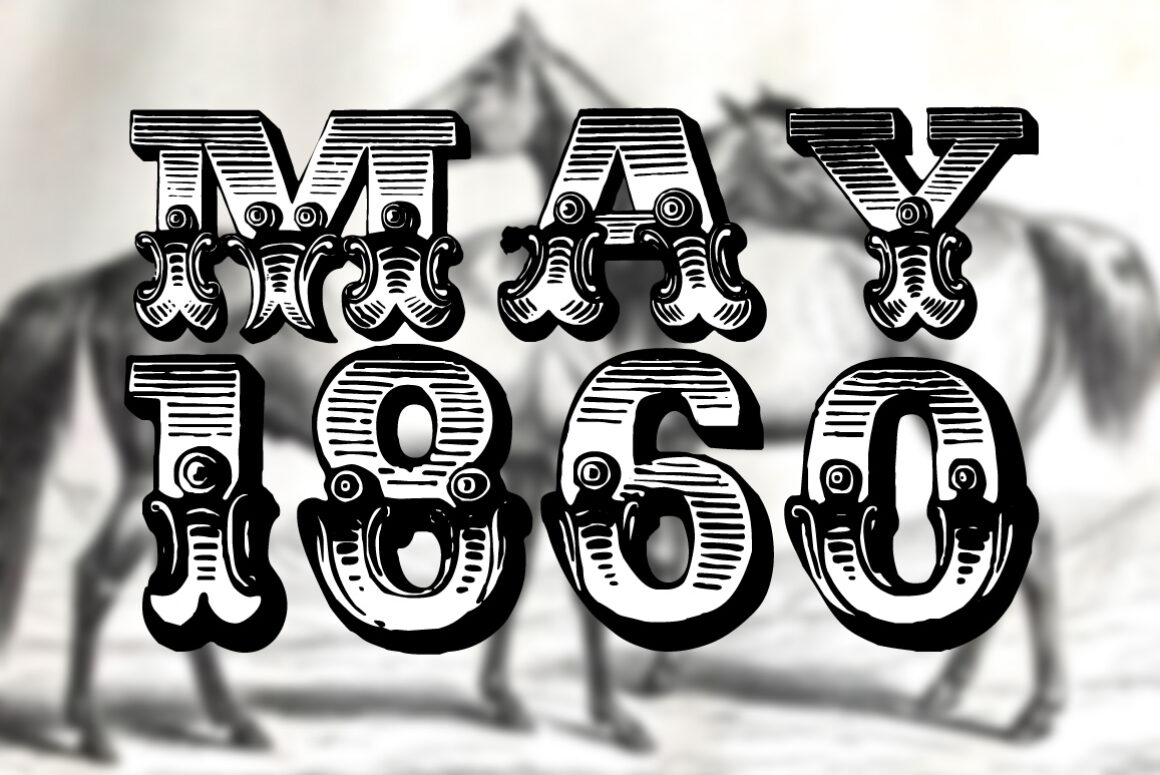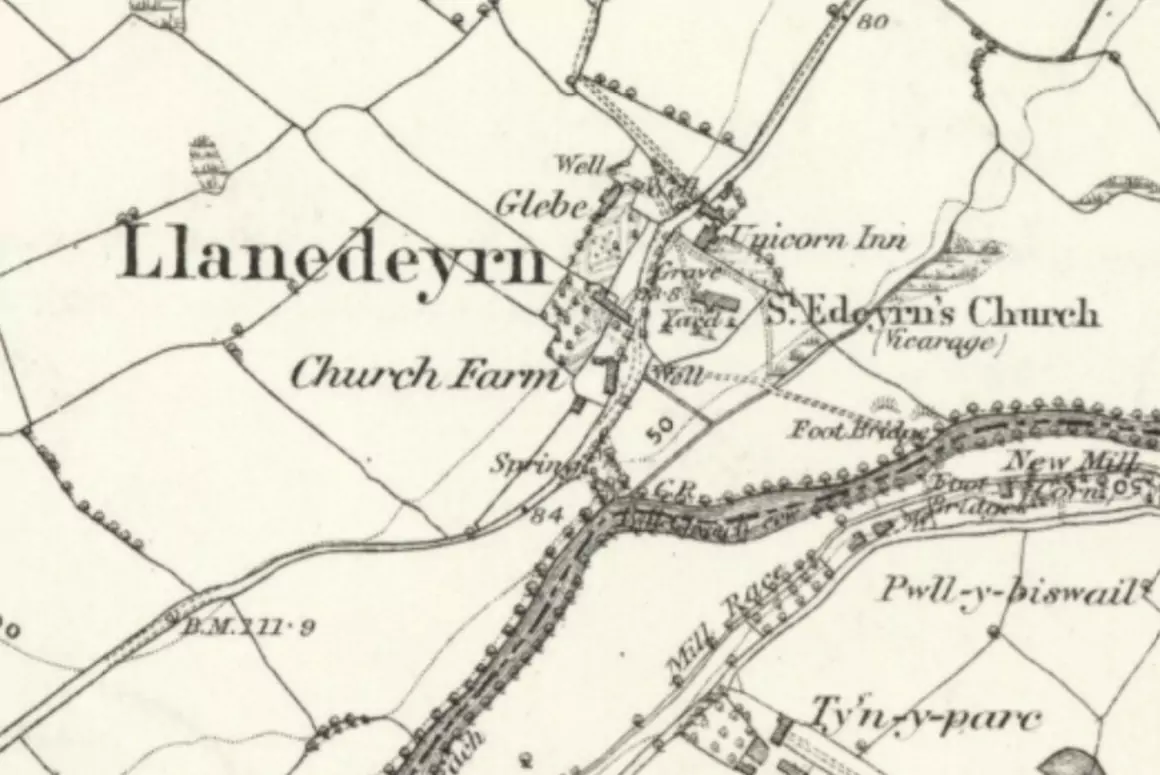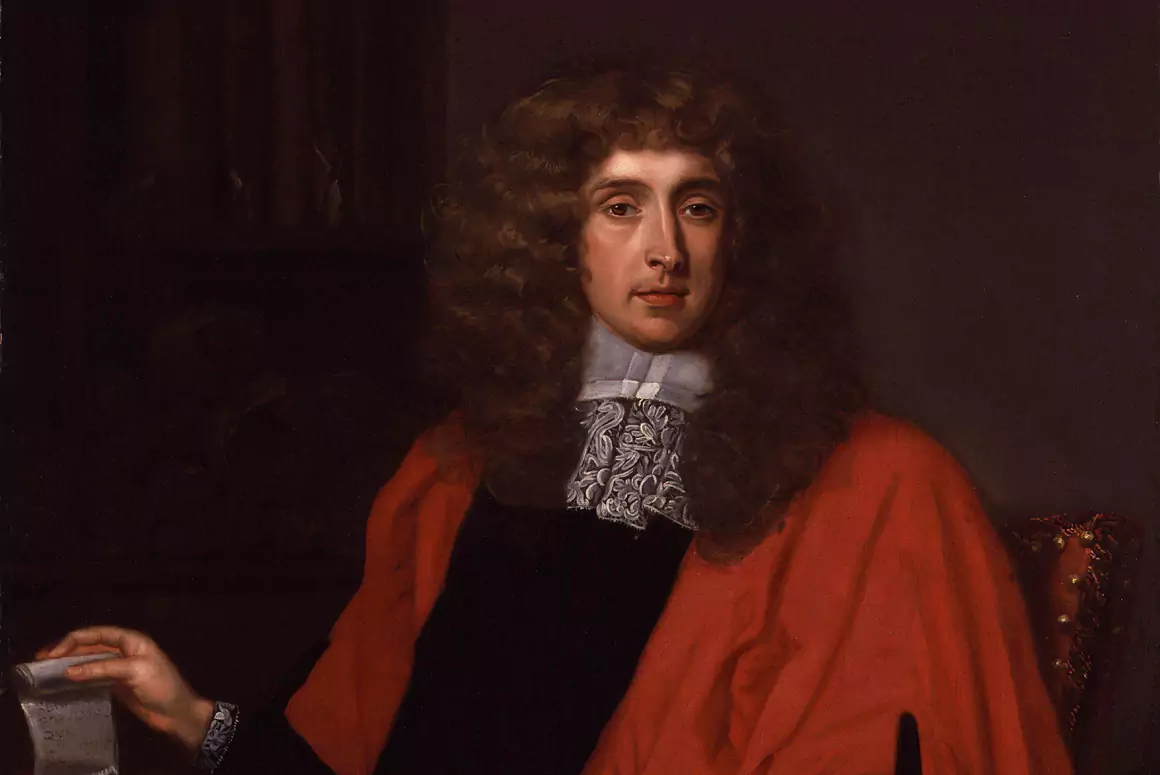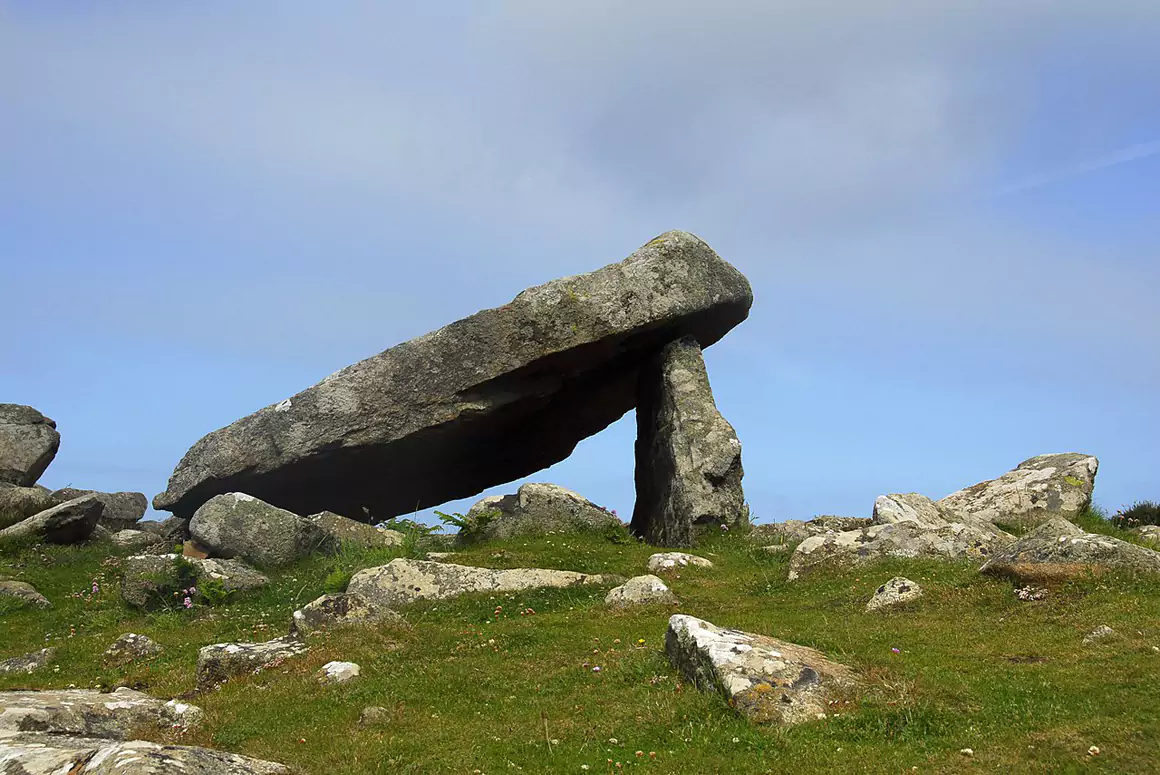![]()
There were lots of problems in the nineteenth century with horses. Perhaps you are not surprised, but I was. I have always recognised them as big things, naturally, but otherwise not especially interesting. I know some people like them, and like them a lot, but would only ever take an interest in them if I was following them with a shovel and a bucket; any gardeners out there will know what I mean. But after looking at Welsh newspapers for May 1860, it is now clear to me that they have always been a lot more trouble than a car and twice as unreliable. In that troublesome month, no activity was safe from their destructive influence. Consider Richard Jones, for example, who was solemnly visiting Llantrisant for a funeral with his wife and child, an occasion which the Cardiff Times suggests may prove more serious than the event referred to.

Their horse became very restless and managed to overturn their cart, which then fell on Mrs. Jones and the child, so that they were for some time at the mercy of the excited animal. It is certainly not an attractive proposition. We hear that Mrs. Jones lies in a very precarious state.
She wasn’t alone. A young boy called Williams from Crundale near Haverfordwest was driving a horse and cart through a field, when he hit a large stone. He was thrown out, and the cart and horse fell upon him, causing severe injuries. He lies in a precarious state. On Dark Lane in Pembroke, another boy named Williams was run over by a cart, the wheel passing over his bowels, and part of his shoulder, whereby he was much bruised. No surprise there, then.
There was more bad news from Pembroke when Dr. Reid’s horse took fright and galloped down a hill at a terrible rate and the carriage overturned after hitting a wall, throwing the good doctor on to the pavement. The horse then stopped for a few seconds, and afterwards galloped off in the direction of the town, bringing the carriage in contact with a cart, Reid, shocked and shaken was gently taken home to his residence.
The situation was a little more clear-cut for Evan, the son of Capt. David Jenkins of Aberystwyth, who was knocked down by a horse in Birkenhead. The wheels of the cart it was pulling passed over him, killing him on the spot.
Thomas Onslow from Clwyd was luckier. Riding his horse down a hill on a lonely road, Onslow’s horse took fright and reared up and fell on its back, trapping him beneath. His left thigh was broken in two places, and he lay there in agony for two hours, until he was found by Mr Dicken of Pentrecoed, who took him home where a surgeon set the fractured parts, leaving the patient in as good a state as could possibly be expected.
Horses and hills don’t seem to have been a happy combination, which is unfortunate, given the geography of much of Wales. Over at Pontypridd there was an incident involving Mr. Habbaccuc, who was driving home with his wife, child and servant, when his mare, a spirited animal, became very restive on the hill leading up to Penycoedcae, and commenced kicking and plunging, by which the trap was broken to pieces. Mrs. Habbaccuc received severe injuries. We are happy to add that Mr. Habbaccuc, the infant, and servant escaped with but slight injuries, and Mrs. Habbaccuc, having had her wounds attended to by Dr. Lewis, of this town, is progressing very favourably.

There is a pattern forming here, isn’t there? The behaviour of horses undoubtedly leaves something to be desired.
In Cardigan an accident of an alarming character occurred to Dr. Malet, of Pantyderri, who was travelling with some ladies in a carriage from Cardigan to Narberth Road Station when, near Boncath, the horses suddenly bolted, and pulled the carriage into the wall of a building, throwing out the whole of the occupants of the carriage, inflicting extensive injuries. The journalist’s lot is not a happy one, for there has been little time in which to complete this distressing tale and so we are left with a tantalisingly incomplete story. The full extent of the accident could not be learned in time as the place is some miles distant.
In St Asaph there was a serious accident to Superintendent Pugh, of Denbigh who, with P.C. Rowlands, was returning home from Abergele, where they had been engaged in the inspection of weights and measures, when suddenly their horse fell, throwing both men violently out of the cart. Perhaps safety belts should have received more serious consideration, but to be honest, things got worse. The box of weights fell upon the superintendent in the fall, breaking his right arm above the elbow. The constable, beyond a few bruises, was not injured. Mr Pugh had a compound fracture, the bone protruding through the flesh and causing great Ioss of blood. The fate of the horse is not reported, though I think we can guess, since the horse’s knees were broken, and the harness torn to pieces.
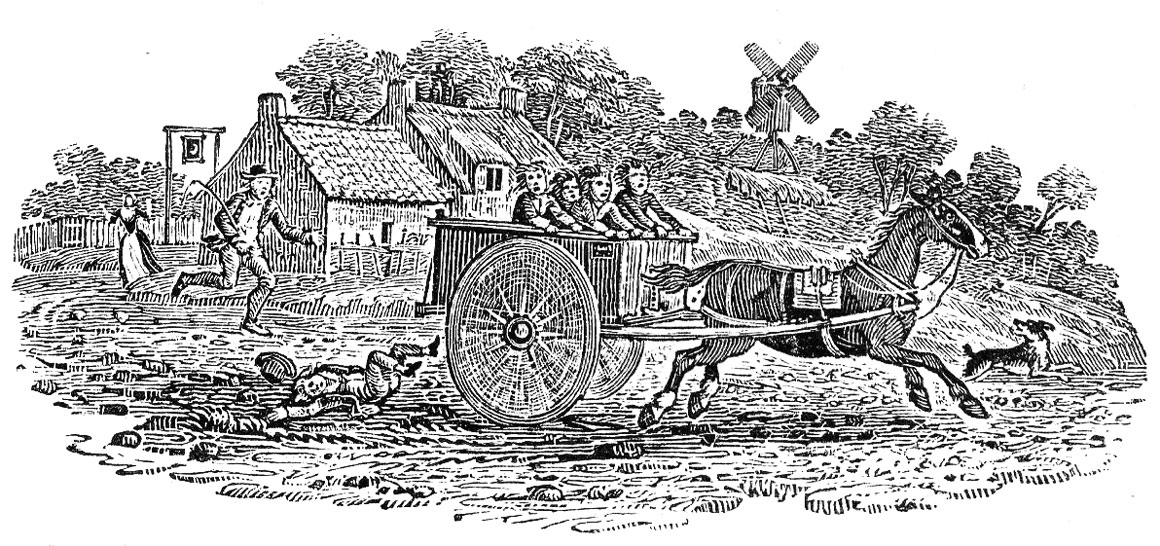
There was a more complicated horse-inspired drama in Monmouth when Henry Dyke was injured in an almost fatal accident. He was a bit of local entrepreneur, the boss of the Monmouth Hotel and a coal merchant, as well as the owner of a brick and tile works at May Hill Wharf. Dyke was returning from a business meeting in his horse and trap when, on St. James Street, the animal became uncontrollable. It bolted and the trap hit a raised footpath that threw him to the ground. The horse continued and ran straight into the window of Mr. Meredith’s shop, to shatter most of the panes of glass entirely to atoms. About 16 panes of glass, besides the sash or framework were literally smashed into a thousand pieces; The horse’s head and forehead and the shafts, went into the window, but the after-part of the trap struck against the wall, stopping further progress.
At this moment, the trap door immediately below the window in question, gave way, and the hind quarters of the animal sank in, one of his legs becoming completely entangled in the debris, though the horse was otherwise unharmed.
A woman and child were looking in at the window of Mr. Meredith’s shop, when the accident happened, and we are glad to state, escaped without injury. The poor women however did not recover her self-possession, for some time after, owing to the fright.
Mr. Dyke received a nasty cut to the head, as well as shock, and other injuries. But we believe under the care of his medical attendant is progressing as favourably as can be expected under the distressing circumstances. Phew.
Is it any wonder that at the end of the month. William Fox, of Govilon, was arrested by Sergeant Poyntz, for leaving his cart and horse on the highway, unattended. He received a reprimand from the magistrates, and was fined 2s. 6d. plus costs. Horses are dangerous beasts, after all. You certainly wouldn’t want one in your house.


